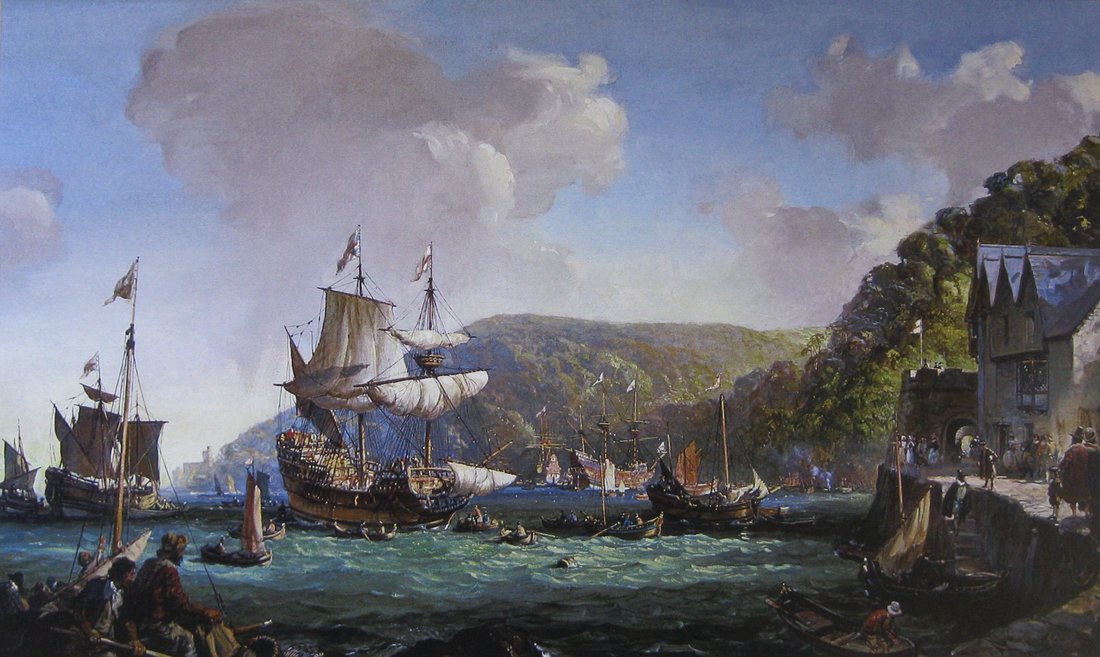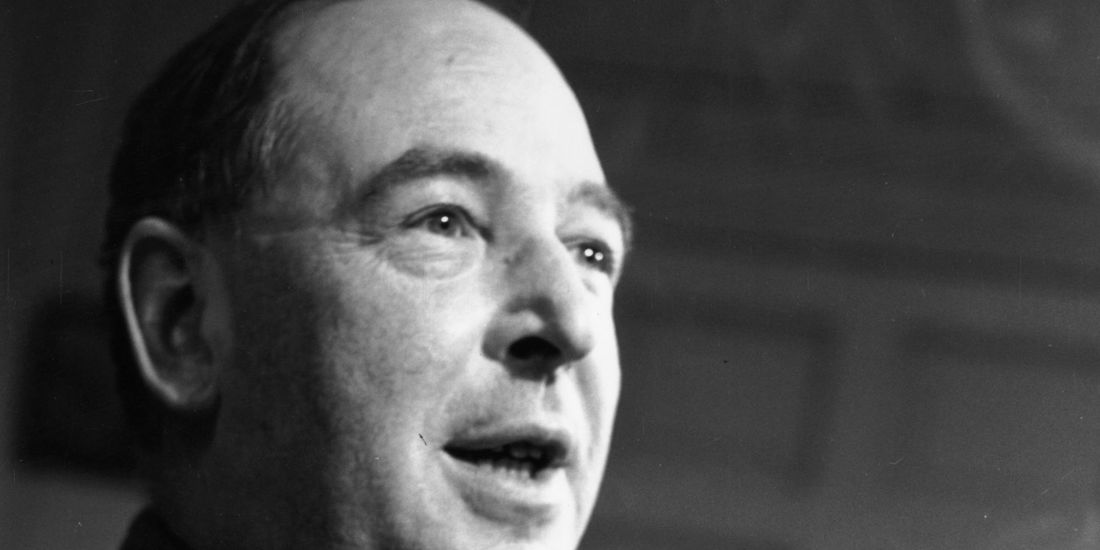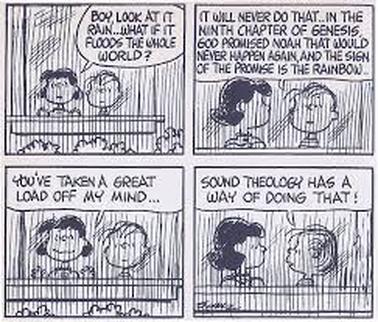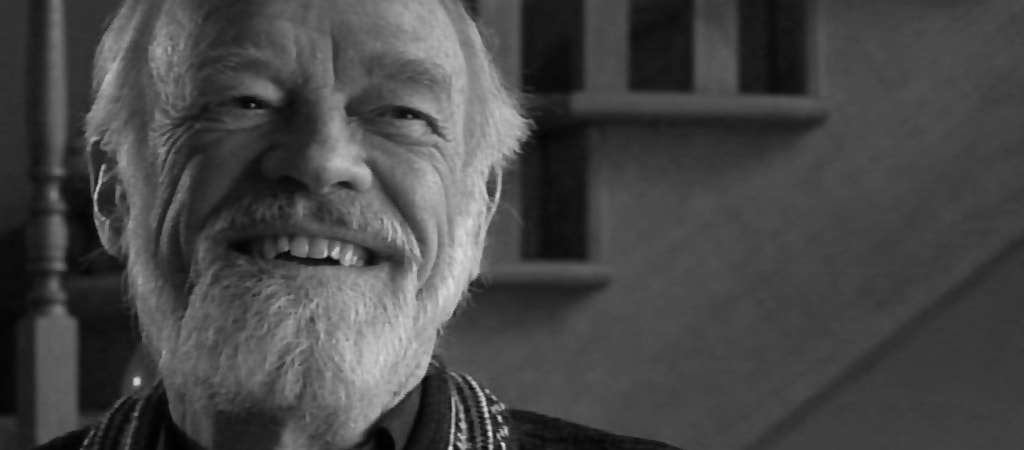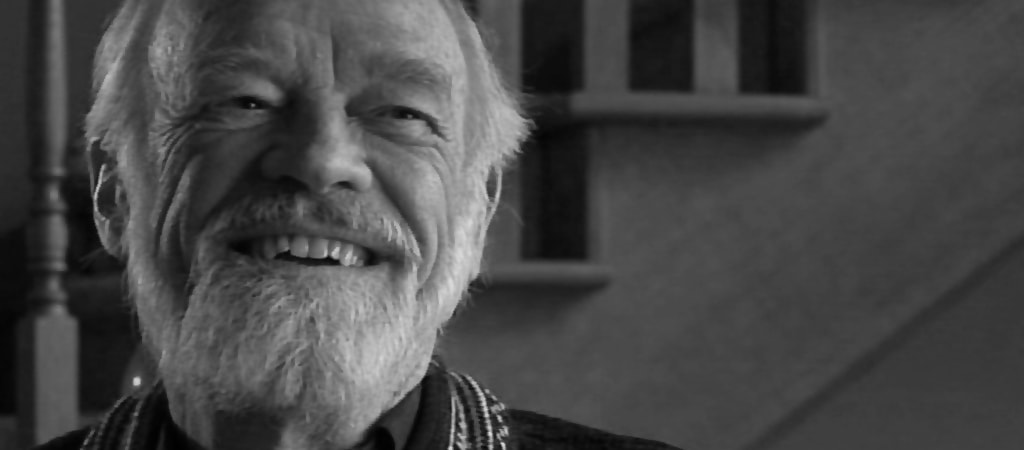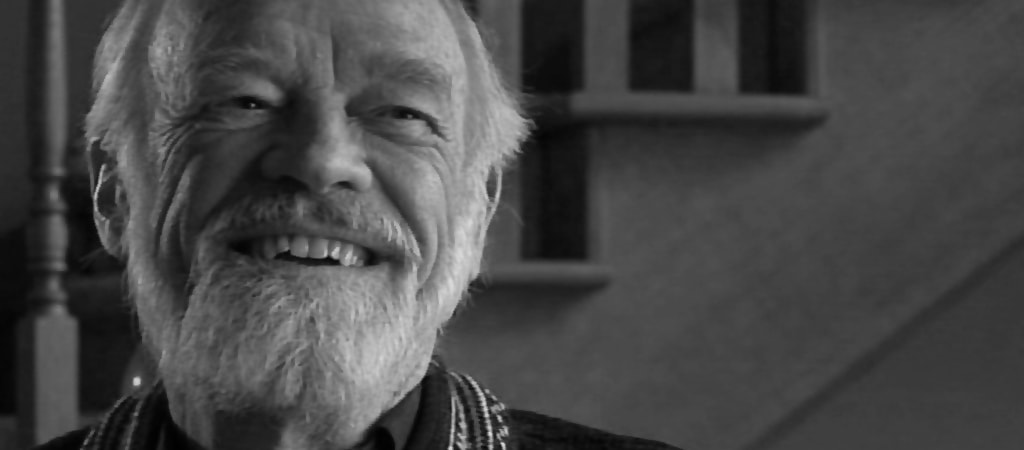|
Wecome to Logia, the personal blog of Paul Hartwig. Reflections and resources to enhance understanding of what God has revealed of himself in Scripture.
|
|
Architecture and floor plan in church buildings is a theologically instructive study. For most of christian history, formal ecclesiastical buildings were designed to express Christian belief, The seating arrangement, the position of the pulpit or lectern, the place of the Communion Table, baptismal font etc were very often theological statements and changes were seen as heretical. I think it is important that we think about this issue again, and intentionally construct a Christian layout to our worship venues that is theologically orthodox. Before I tell you what I think this should look like, consider the changes that have happened over time:
The Early Church: there was no real pulpit or religious furniture since they met in homes. Yet the Word and the Lord's Meal were vital and shaped their meetings. The Medieval Church: with increasing sacramental theology, the altar became the centre piece of the service and thus the focus of building and floor plan. The lectern or pulpit was placed to the side. The Protestant Church: with the Reformation, the altar was exchanged for the Pulpit and the Lord's Table was placed under the Word. (Lutheran and Anglican churches kept an 'altar'). In many Reformed churches, such as the Zurich churches under the reformer Zwingli, the table was a place where the worshipers came up to and sat to eat of the Lord's Supper. It was not a symbolic table but a functional one. The Modern Church: the stage and music team is the centre piece, with the pulpit exchanged for the music stand. Thus the progression (or regression) has been: Word & Meal > Altar > Pulpit & Table > Stage & Music Stand > ? I think it is time to signify who we are and what we are doing in our meetings by placing the Pulpit & the Table back to centre stage. The Table is a symbol of Communion with Christ, the Head of the Church and His people present. This communion should be the goal and intent of our gatherings. The 'Table' expresses peaceful fellowship vertically and horizontally, for us made possible through his shed blood. The Pulpit is also central, for we are a people created by the Word of the Gospel. It is the divinely ordained means to what should happen at the Table. Much more can be said, but I trust you will think about the importance of having a Pulpit and a Table restored to their rightful places in Christ's church. The Lord speed the day when the Pulpit and Table are fulfilled among us.
2 Comments
Like it or not, John Calvin is here to say. He is one of those few persons who have left their own stamp on history. Books, seminaries, churches, sons’ names, comic strips, conferences, class room debates and denominational magazines continue to carry Calvin into 2010 and beyond. In 2009 people celebrated 150 years since Charles Darwin’s birth, and 500 years since Calvin’s. Both these men propagated systems of thought that have profoundly influenced Western civilization. The mere mention of the name ‘Calvin’ and ‘Darwin’, will provoke either love or hated, words of infamy or eulogy, but never neutral indifference. We might say (with much oversimplification) that each man went in mutually opposite directions with incredible zeal and fruition. Whilst Darwin penetrated the world of man and of nature, Calvin scrutinized God and His Word.
John Calvin was born in France in 1509. Providence enabled him to start his studies from an early age. Being by temperament driven and decisive, he excelled in his classical, theological and legal fields of study. Then at age 23, whilst in Paris, he experienced a conversion and joined the Protestant cause. “God” he later said, “by a sudden conversion subdued and brought my mind to a teachable frame”. From then on Calvin was mastered by a sense of the Majesty of God and His Word, inspiring an unreserved surrender of himself in every way. In a unique way providence, natural temperament, intellectual rigour and spiritual devotion converged and were thenceforth directed to the rebuilding of the Church on its true biblical foundation. As someone has said, he was able to take the Protestant mob, and turn it into an army. My first impression of Calvin was of a man who limited God’s love to a few, who ruled Geneva with the iron fist of a dictator, being of a stern, cold and marble-like demeanour. However, though I could justify leaving John Calvin on the shelf of history, I could not do that with Romans chapter 9. After a while I came ‘kicking and screaming’ to the conclusion that the only faithful reading of that chapter was the traditional ‘Calvinistic’ one. Since then, I began a personal reassessment of the famous Genevan Reformer. I realized that prejudice, caricature and second hand opinions have prevented many from appreciating his huge contribution to both theology and the church. This does not mean that we must slavishly follow the reformer in every way as some seem to do. Rather, we should critically appreciate his significance as one whose writings so closely approximated the body of truth given for us in the Scriptures. Will John Calvin always be a part of Christian theology? I believe he will be. The comprehensive and biblical nature of his writings is unique. His sense of the Majesty and Glory of God in all things remains catalytic for spiritual reformation. His self-immolation for the cause of the Lord and His church is heroic. His stand point is so clearly opposed to the humanizing tendency of the world and human nature. His zeal to purge the church of foreign elements and to establish her strictly upon the foundation of biblical revelation will always be an ongoing principle in the Body of Christ. So, I challenge you to get beyond the accretions of historical prejudice. Separate the 16th century form of his writings and appreciate the quality of his content. Disagree with him, agree with him. Go to the primary sources of his writings. Read his Institutes of the Christian Religion and his Commentaries. Then I’m sure you will understand why 500 years later we are still talking about John Calvin. “Doctrine is not an affair of the tongue, but of the life; is not apprehended by the intellect and memory alone… but is received only when it possesses the whole soul, and finds its seat in the innermost recesses of the heart” (from The Institutes: Book 3:Chapter 6) Words, said Samuel Johnson, are the clothes of thoughts. That said, there are two very important words help us take up and live in the world and the Word more faithfully and thus Christianly. The words are 'inductive imagination'. Here is my story...
It was about 4 years ago that whilst swimming in the local gym pool that I had my epiphany of inductive imagination. I realized that I was doing this length to clock up my 20 lengths to then change, go home, get my afternoon tasks done to finish the day to begin the next day finish that then finish the week get to Sunday and so begin on Monday again. I was not attentive or enjoying my length in the pool because i was 'using' it to clock up a total to then get on with the next thing. I was living in terms of quantity of time and not quality. Why did I have to define or interpret the present moment in terms of other things rather than just do the present on its own terms? (later, Eugene Peterson would borrow a phrase from a poem to describe how I was not living - 'every step an arrival'). I then got out of the pool and in the change rooms decided to stop and just look around and where I was an appreciate it and pay it the necessary attention, as apparently insignificant as my surroundings where. Well, that time at the gym initiated (or maybe established) me into a more self-conscious way of living, the way of 'inductive imagination'. It is a 'method of life' which pays attention to the present and does not allow the forward flow of life to steal from the present. It is a way of living, loving, serving, reading, praying, and serving that loving takes up the present period and appreciates what God has done here and now. It resists the modern way of living where we are so busy getting ahead that we do not thankfully and humbly enjoy what is under our noses. It is resisting the desire to put the next tasty chip into your mouth so that you can thankfully savour the one that is already there. Have you discovered inductive imagination? "Disabusing the Church". I think that this is what identifying with the world-wide Baptist witness is all about. "Disabusing" is a apt word, for it means "to free from undermining or inappropriate and alien elements". Consider all the movements and organizations and individuals that collect under the umbrella 'Christianity'. Baptists strive to express at a local church level what is most essential and characteristic of the universal Church of Jesus Christ. The movement believes that not every entity under that umbrella is authentically Christian or true to the type of Church that Christ desires.
The Baptist churches are churches endeavoring to bear witness to a type of church which is most congruent with the nature of the Church itself, reforming itself from all cultural barnacles and traditional accretions. This 'reformist' leaven should be found in Baptist churches, and all who want to be part of a type of church that is blue-printed in the New Testament should seriously desire to join the Baptist movement. I am currently teaching on Baptist history at the Cape Town Baptist Seminary. This task has allowed me opportunity to think over the identity of the Baptists within the world Christian movement. Together with many others in past and present history, I have been asking afresh the perennial questions: who are Baptists?, what truths do they stand for?, what should they look like today? etc. That is, what facial outlines should we construct to this 'Baptist man'. So, for the next few posts I will be looking at what being a Baptist is all about, with particular reference to some of the challenges we are facing in the Baptist Union of South Africa.
Before I end let me give you this interesting bit of SA Baptist history... Most, if not all, of the pioneer Baptists who came out to South Africa in the 1820's (Mr William Shepherd, Mr William Miller et al) came from 'Chapels' back in England. These churches did not nominate themselves 'Baptist' but rather Chapels , for e.g., 'Edward Street Chapel', 'Eagle Street Chapel', etc. For this reason the great baptist C H Spurgeon was pastor of 'New Park Street Chapel' and 'Metropolitan Tabernacle' - all without the name 'Baptist'! I thought this should be of interest in responding to the contemporary trend of some Baptist Churches to drop the name 'Baptist' from their name. More on this later. The following farewell words, spoken by an English pastor in Leiden to his America-bound congregation in 1620, remain crucial for any student of Scripture. Edward Winslow, who traveled on The Mayflower, remembers Pastor Robinson's parting exhortation:
We we now ere long to part asunder, and the Lord knoweth whether ever he [Robinson] should live to see our faces again. But whether the Lord had appointed it or not, he charged us before God and his blessed angels, to follow him no further than he followed Christ; and if God should reveal anything to us by any other instrument of his, to be as ready to receive it as ever we were to receive any truth by his ministry; for he was very confident the Lord had more truth and light yet to break forth out of his holy word. He took occasion also miserably to bewail the state and condition of the Reformed Churches, who were come to a period in religion, and would go no further than the instruments of their Reformation. As, for example, the Lutherans, they could not be drawn to go beyond what Luther saw; for whatever part of God’s will he had further imparted and revealed to Calvin, they will rather die than embrace it. And so also, saith he, you see the Calvinists, they stick where he left them; a misery much to be lamented; for though they were precious shining lights in their times, yet God had not revealed his whole will to them; and were they now living, saith he, they would be as ready and willing to embrace further light, as that they had received. Here also he put us in mind of our church covenant, at least that part of it whereby we promise and covenant with God and one with another, to receive whatsoever light or truth shall be made known to us from his written word; but withal exhorted us to take heed what we received for truth, and well to examine and compare it and weigh it with other Scriptures of truth before we received it. For, saith he, it is not possible the Christian world should come so lately out of such thick antichristian darkness, and that full perfection of knowledge should break forth at once. Another thing he commended to us, was that we should use all means to avoid and shake off the name of Brownist, being a mere nickname and brand to make religion odious and the professors of it to the Christian world. And to that end, said he, I should be glad if some godly minister would go over with you before my coming; for, said he, there will be no difference between the uncomformable ministers and you, when they come to the practices of the ordinances out of the kingdom. And so advised us by all means to endeavour to closely with the godly party of the kingdom of England, and rather to study union than division, viz. how near we might possibly without sin close with them, than in the least measure to affect division or separation from them. And be not loath to take another pastor or teacher, saith he; for that flock that hath two shepherds is not endangered but secured by it. A few weeks ago I walked past a house under construction. But I not only walked past it I also thought about something as I walked by (my multitasking is making huge strides forward as you can observe). How similar the church is to a construction site! On a work-site all is unfinished, there is lots of noise, lots of rubble, lots of activity and everywhere you look things don't look good. Yet how stupid the anxious owner would be to expect anything less! Any owner with his head screwed on properly should not be angry at cement in a flower bed or half-bricks on his lawns. He should know that such things inconveniences accompany any construction work. Yet how unrealistic you and I are about the church which Jesus is still building!
We become petty and upset about so many things. Sometimes Christians even think of moving to another church where things will be 'decently and in order' (= no building work going on). No such church should exist! Though society may mock don't let the imperfections on God's site put you off. Use your imagination and see all that Jesus is doing in the midst of the mess. Essential Gospel frameworks for viewing Israel-Palestine issuesI believe that we need to begin all over again. Too many sincere Christians are viewing the Israel-Palestinian struggle through the wrong lenses. We need to re-frame and get back to the framework of Jesus, Paul and the other apostles. Below are the four sides of a Gospel-shaped frame that I believe enable us to correctly approach what the issue.
 For any who are interested in knowing how a Christian should view the present State of Israel, I offer these two articles for your consideration:
1. Foundational thinking for Church and Israel 2. Toward and Understanding of Present Day Israel and her claims to the Land In recently reading C S Lewis' last book Letters to Malcolm Chiefly on Prayer we were struck at his description of how terrible it must be for anyone to be ignored by God. Here is how Lewis put it:
"We can bear to be refused but not to be ignored. In other words, our faith can survive many refusals if they really are refusals and not mere disregards. The apparent stone will be bread to us if we believe that a Father's hand put it into ours, in mercy or in justice or even in rebuke. It is hard and bitter, yet it can be chewed and swallowed. But if, having prayed for our heart's desire and got it, we then become convinced that this was a mere accident - that providential designs which had only some quite different end just couldn't help throwing out this satisfaction for us as a by-product - then the apparent bread would become a stone. A pretty stone, perhaps, or even a precious stone. But not edible to the soul." How much more dreadful it must be to be ignored by God than for Him to not exit at all. How wonderful the opportunity we have to come to a good Father through the Lord Jesus Christ! You can get His full loving attention today, as you come to Him through Jesus Christ who is the only Way. ADVICE ON READING by Richard Baxter (1615-1691)
"Make careful choice of the books which you read: let the Holy Scriptures ever have the pre-eminence, and, next to them, those solid, lively, heavenly treatises which best expound and apply the Scriptures, and next, credible histories, especially of the Church . . . but take heed of false teachers who would corrupt your understandings." 1. As there is a more excellent appearance of the Spirit of God in the Holy Scripture, than in any other book whatever, so it has more power and fitness to convey the Spirit, and make us spiritual, by imprinting itself upon our hearts. As there is more of God in it, so it will acquaint us more with God, and bring us nearer Him, and make the reader more reverent, serious and divine. Let Scripture be first and most in your hearts and hands and other books be used as subservient to it. The endeavours of the devil and papists to keep it from you, doth shew that it is most necessary and desirable to you. 2. The writings of divines are nothing else but a preaching of the gospel to the eye, as the voice preaches it to the ear. Vocal preaching has the pre-eminence in moving the affections, and being diversified according to the state of the congregation which attend it: this way the milk comes warmest from the breast. But books have the advantage in many other respects: you may read an able preacher when you have but an average one to hear. Every congregation cannot hear the most judicious or powerful preachers: but every single person may read the books of the most powerful and judicious; preachers may be silenced or banished, when books may be at hand: books may be kept at a smaller charge than preachers: we may choose books which treat of that, very subject which we desire to hear of; but we cannot choose what subject the preacher shall treat of. Books we may have at hand every day, and hour; when we can have sermons but seldom, and at set times. If sermons be forgotten, they are gone; but a book we may read over and over, till we remember it: and if we forget it, may again peruse it at our pleasure, or at our leisure. So that good books are a very great mercy to the world: the Holy Ghost chose the way of writing, to preserve His doctrine and laws to the Church as knowing how easy and sure a way it is of keeping it safe to all generations, in comparison of mere verbal traditions. 3. You have need of a judicious teacher at hand, to direct you what books to use or to refuse: for among good books there are some very good that are sound and lively; and some good, but mediocre, and weak and somewhat dull; and some are very good in part, but have mixtures of error, or else of incautious, injudicious expressions, fitter to puzzle than edify the weak. BAXTER’S GUIDE TO THE VALUE OF A BOOK While reading ask oneself: 1. Could I spend this time no better? 2. Are there better books that would edify me more? 3. Are the lovers of such a book as this the greatest lovers of the Book of God and of a holy life? 4. Does this book increase my love to the Word of God, kill my sin, and prepare me for the life to come? One of the most important ways in which a Christian is called to learn is by listening to the Scriptures. This is particularly hard for us because most of us are very poor listeners. Yet we must cultivate this art if we are going to love the Scriptures (and people too). C S Lewis was a faithful guide in this art. Listen to the following words of his on Art Appreciation - and then go and do likewise with Scripture:
"We must look, and go on looking, till we have certainly seen exactly what is there. We sit down before the picture in order to have something done to us, not that we may do things with it. The first demand any work of art makes upon us is surrender. Look. Listen. Receive. Get yourself out of the way”. "Pay close attention to your life and to the doctrine. Persevere in them, because if you do, you will save both yourself and your hearers" (apostle Paul to young Timothy, 1T4:16)
'Salvation' is the master idea in the Bible. It is its biggest and most comprehensive word. It is a wonderful word! Yet what our minds think it means is not always what the Scriptures mean by it. I believe that a faithful approximation of this Biblical term (taken from the story of Creation and the story of the Exodus) should run like this: Salvation is that comprehensive work of the triune God, authored by the Father, accomplished by the Son, applied by the Spirit, whereby he takes his ruined image bearers out of sin and into service for the extension of his glory in the universe. The amazing thing about what Paul says to Timothy is the glorious and sobering conjunction between that salvation-work and Timothy. If Timothy lives a godly life and feeds on the sound Scriptural doctrine he learned from his grandmother, mother and later Paul, then he will mediate this grand salvation work into his own life and into the lives of those who hear. The implication of this is that we neglect godliness and doctrine at a great peril to both ourselves and our hearers. So, why go to a Seminary or Bible College? I simply answer: To better fulfill this verse. Many good institutions offer conditions whereby you can be further trained in godly lifestyle and sound doctrine. Seminary is of course not essential for this, but the conditions Paul gives are. Exercise yourself in godliness and nourish yourself on sound doctrine, for in doing this you will reap benefit in all things - both for all things in this life and in all things in the next life (1 Tim 4:8.) Who would not want that! Sometimes entire books and subjects can be distilled into a few essential concepts. For example, the whole Scripture is fulfilled when we love one another. Such is the case with learning how to understand the Bible. I believe that we will fulfill all the principles of 'how to understand the Bible' (hermeneutics) if we ask each passage only three questions:
1. What did the author write? 2. What is the meaning intended by the author in that writing? 3. What is the significance of the meaning of what he/she wrote? Get these three questions right and you will always handle God's Word faithfully. All commentaries are mere footnotes to these master questions. 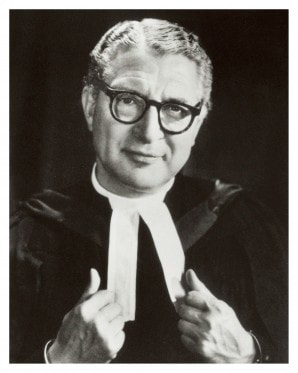 Methodist W E Sangster (1900-1960) wrote book on Christian holiness called The Pure in Heart: A Study in Christian Sancity (1955; London: The Epworth Press). I was glad to find that the important insights of John Piper and his 'Christian Hedonism' are also reflected in the follow practical illustration: "That pure a altruism is a moral absurdity, as grave, though by no means as common, as pure egotism, can be shown in an illustration. Here are two men, neither of whom falls in love but each of whom marries a nurse: one is a pure egotist, and the other a pure altruist. The first one marries the nurse, because, knowing his own family health record, he fears that some day he will be an invalid and he wants her tied to him that he may benefit by her professional skill. 'What a bounder!' the average man would say. 'What a low motive for getting wed!' But look at the pure altruist! He marries the girl, not because he loves her (there is no taint of self about him): he marries her because he thinks nobody else will, and life will be very lonely for her as time goes by, and the day comes when she can nurse no more. Moreover, he thinks that living with her will give him many opportunities for self-abnegation.... Will that please the girl? If she knew his real heart, would she wed? Is it not obvious that both fail? - and does not that last illustration give us the clue that we are seeking? There is happiness for the girl only in the knowledge that, in getting the man she loves, she is giving happiness. You cannot separate yourself from others. God make us members one of another and to take ourselves out of the family either by the high road of 'pure' altruism, or the low road of sheer egotism, lands us in absurdity at the end" (page 230) How can we define pastoral work? It is my conviction that no writer has done it better today that Eugene Peterson. The shape of this work has three angels: the pastoral imagination and practise is a life-long calling to a cultivation of attentiveness, reverence and humility before the realities of God (prayer), His revealed Word (Scripture) and His people (Church). We stagger as we affirm with C S Lewis that 'the inside is bigger than the outside'. But the means of our ministry is a personal participation in these 3 continents. The pastoral call is a counter-cultural call to is personal and participatory. This is what Peterson calls the 21c pastor back to in all his writings: paying attention to the Triune God, to Scripture and to People.
This call to slow down to pay attention to the particulars before our face came home vividly to me whilst I was swimming in the gym pool. It dawned upon me that I was not taking in what I was doing, I was simply cycling through the present to get to the next thing, and so on. I was not actually enjoying swimming one length because I had to get finished and get onto the next thing. I was taking things for granted. This was robbing the present to pay the future! Hit by my criminal inattention to present things, I went into the shower and consciously slowed down to consider present conditions and realities around me. In the shower I looked up and contemplated where I was. I stopped and looked around, taking in what was before my nose! That unnecessary pause in the shower has become a sacramental act to remind me to slow down, open my eyes and 'smell the roses' where ever I am; to be immediately present to things. I think I was then getting what Peterson was trying to communicate to me when he said: 'every step an arrival'. Don't be so bussy to try to get ahead that you have no time for the present. I realised that the pastoral call is to do exactly what I had done in the gym: pay attention (to God, Scripture and People). Attention to God's written revelation is the second angle defining our call. Peterson defines exegesis as a sustained act of humility, where we love God enough to stop and listen to what He is saying. Once again, he directs us a particular manner of reading Scripture, a way congruent with the nature and objective of Scripture itself: formatively. We read not merely to harvest information, but to personally involve ourselves in the text that forms us as worshippers. As we read a Cooking book or Gardening book, so we should read to Bible. We should give particular notice of the metaphors and stories of Scripture. Through them we are personally pulled into a participatory believing, listening, loving way of life that is, above all local and personal: prayerful! Attention to God's people. Peterson warns us of the depersonalising tendencies of our culture. It is so easy to trivialize people into producers and performers. We must personalise at any cost, and salvage the glories and complexities of the congregation. There are no mere people, no 'ditto's in souls' (Baron von Hugel), no reduction to stereotypes and no abstractions when it comes to people. They are irreducibly personal, “not problems to fixed but mysteries to be honoured and revered. Who else in the community other than the pastor has the assigned task of greeting men and woman and welcoming them into a congregation in which they are known not by what is wrong with them but by who they are, as they are? Worshippers in the image of God”. Our attention to congregation is attention to names and individuals, to creating a community where people can be loved for who they are not for what they can do. As a church planter, Peterson expected 'green-berret' Christians, a gathering of the cream of the crop to in his new church. The realities of the congregation soon set in and he realised that pastoral work was a call to the trenches of ordinary life, witnessing to transcendence in the smog of rush-hour traffic and coffee-shops in the Mall. These people, as they are. The pastor’s main task is to help others to pray (Under the Unpredictable Plant). Calling others to pay attention. Pastors, fight with blood-earnest vigour to keep your hold on these three things, and in the singular manner of personal and perceptive participation. Amidst such cultural conditions, a prohetic all today is to pioneer in attention to things! A call to a certain quality of life. Slavage a biblical identity. Pastor is not a job to make a living; it is a way of living. G K Chesterton, that great English writer of the early 1900’s, ‘had a fancy for writing a romance about an English yachtsman who slightly miscalculated his course and discovered England under the impression that it was a new island in the South Seas’ (Orthodoxy). His hilarious parable has become for me a pastoral parable useful as a cure for the common pastoral itch of moving on to another church.
In Chesterton’s story I see a restless pastor who moves from church to church only to discover that his original congregation presented (though camouflaged) all the conditions necessary for him to satisfying his calling on; his romantic idealism and wanderlust found gratified on the pedestrian realism of a very ordinary local church. In my parable I see countless pastors perpetually searching for their dream church when the real one back at home is exactly that! In the books of Eugene Peterson on pastoral ministry we have a chaste power to discipline the desultory mind of any pastor and rivet it on the glories that are right under his nose in the local congregation. This power to unmask the ‘ordinary’ and reveal the God-colours and Christ-realities of church life is what Peterson is brilliant at. Of primary importance in the pastoral call is attention to God. Peterson is convinced that the quality of the activity of worship in the pastorate determines its health. God Himself constitutes our work, and devotion and attention to Him is the defining context within which we fulfill our calling. This work of worship is not preparation to our ministry, it is the ministry. Paying attention to the Trinity and what Christ is doing and then leading others into this divine reality is our focus. Worship is the centre and circumference of pastoral work. Thus in the truest sense, Peterson’s writings call the pastor back to being a worship leader in the congregation, away from the cultural distortions and idolatrous attractions of our time. This means we have to know God first-hand: ‘I want to do the original work of being in deepening conversation with God... I don’t want to live as a parasite on the first-hand spiritual life of others, but to be personally involved with all my senses, tasting and seeing that the Lord is good’ (The Contemplative Pastor). Pastoral work is thus a personal participation in God revealed in Christ and is today diametrically opposed to the insidious temptation of the managerial, the pragmatic and the success driven models of ministry. Judging the quality of pastoral work in terms of results in the pews and efficiency in leadership rather than in terms of prayer and intimacy with God reveals the intrusion of prevailing cultural assumptions in our ministry. Don’t be so busy getting ahead in your ‘work’ that you do not cultivate a deepening relationship with Christ. So Peterson reminds us that the definition of ‘pastor’ should never be socially or vocationally defined, but always and only theologically! God is the object and subject of our calling. Peterson in Working the Angles reminds us of the difference between a job and a profession. ‘A job is what we do to complete an assignment. Its primary requirement is that we give satisfaction to whoever makes the assignment and pays our wage... But professionals and crafts are different. In these we have an obligation beyond pleasing somebody: we are pursuing or shaping the very nature of reality, convinced that when we carry out our commitments we actually benefit people at a far deeper level than if we simply did what they asked of us.’ Employees have job-descriptions. Professionals rather have callings to something beyond a task (which ‘work hours’ cannot circumscribe). Professionals are called to the integrity of the matter itself: health (not just making people feel good); justice (not just winning a case), learning (not merely helping people pass an exam) etc. With pastors, our professional subject matter is God and we dare not pervert our ministry into a job. Our vocation is irreducibly God-focussed and priestly. It certainly entails other dimensions, but this is our sovereign concern. I close with Peterson’s favourite image of the pastor (The Contemplative Pastor). It is taken from Herman Melville’s Moby Dick. The scene is of a small whaleboat scudding across the wild sea in pursuit of the whale. All the sailors are labouring fiercely at the oars. In the boat however one man does nothing. He is the harpooner. He is quiet, poised, and waiting. Melville adds this sentence: “To insure the greatest efficiency in the dart, the harpooners of this world must start to their feet from out of idleness and not out of toil”. Our ‘idleness’ is the practise of attention to God. No writer has helped me understand my task and identity as a pastor as Eugene Peterson has. The light that has shone forth from his many books in such relevant clarity and force has convinced me that he is one of today’s pastoral prophets, a pastor’s pastor with a message from God.
During my annual leave last year I took out his latest book 'The Pastor' from the Cape Town Baptist Seminary and listened with much relish as my wife read it to me. It so encouraged me as a pastor that I wanted to terminate my leave and get back to my congregation! In his biography he distills for us his essential convictions of what this mysterious calling of pastor is all about. All his pastoral books (there is a series of five books available) introduce us to an experienced guide who partners us in our endeavour to keep going due-north in this vocation as pastor. I would like to share with you in outline some of his pastoral confessions which I think are most necessary for us as pastors to hear in our time. I hope they will be as salt in your mouth sending you to drink first hand from this pastoral series. Though Peterson is rightly famous for his most phenomenal achievement The Message, his life’s work has been radically pastoral. The Message grew out of his private attempts to get the message of Galatians into the lives of his TV indulgent congregation. He wanted Galatians to strike home to each of them as if it was written in the idiom of the TV guide or daily newspaper. So, he started working from the Greek text and transposed the meaning and message of the Greek text into the idiom of 20th century North American. His pastoral ambition was to get his congregation into Galatians in such a way that “after two years they wouldn’t know whether they were living in Galatia or America”. What he did in Galatians for his Bel-Air Presbyterian congregation, he went on to do in the other 65 books of the Bible for the entire world. The result was The Message - his greatest written pastoral act. Besides The Message, his writings in the more narrow field of pastoral theology and practise is, I believe, of similar significance. His distinctly personal help for pastors will be what I will share with you on in three issues of Baptists Today. The greatest help that Peterson has given to me has been in the forming of a pastoral imagination. He has the ability to envision for us our vocation as pastors in a way that sends disaffected pastors back to their problem-riddled congregations with a hopeful realism born of understanding the staggering nature of what congregational life entails. He does this by insisting on a pastoral imagination. Imagine yourself (!) walking onto a construction site. To your left and right are brick layers at their work. You approach one and ask him what he is building. ‘A wall’ he replies. You walk over to the other worker and ask him the same question. ‘A Cathedral’ is his answer. What is the difference between the two brick layers? Imagination. The way we look at things before us, how we see things, will determine our experience of the pastoral call. The imagination is our internal capacity to see the bigger picture and to connect the particular into the wonderful God-realities of His word and world. We are so busy rushing on in life, that we do not stop, look, and comprehend the staggering magnitude of the realities before us. Peterson’s subtitle for his biography The Pastor distils this: ‘Every step an arrival’. When we pay attention to the particulars that are before us we can begin to appreciate what is here and the workings of grace in the present (i.e., the congregation). Peterson learned this inductive imagination from his father’s butcher’s shop. ‘Carving a quarter of beef into roasts and steaks was not a matter of imposing my knife-fortified will on dumb matter but respectfully and reverently entering into the reality of the material... respecting the material at hand... a submission of the will to the conditions at hand, a cultivation of humility.’ Attentiveness to present conditions - which is the focus of love - is essential to pastoral work and imagination. We pastors work with invisible and submerged realities that need to be seen imaginatively. This is why that great teacher of the Christian imagination C S Lewis put these words into the mouth of Lucy in his last book in the Chronicles of Narnia: ‘the inside is bigger than the outside’. This is the language of imagination. I think that what C S Lewis and G K Chesterton did for the culture of the mind, so Peterson is doing for the culture of the congregation. Imagination is almost like faith. It is that which connects us to a bigger story, it is the bridge between what we see and what we do not see; it pulls us from what we immediately see into what we don’t see. When imagination involves trust and participation in the unseen, when we walk over the bridge and respond to God personally, then it becomes faith. Imagination and Faith are twins and always belong together - though imagination is the first-born! Hebrews 11 is clear evidence for this couple and their order. Yet for us who are pastors, we are not out doing acts of faith in Palestine like our predecessors in Hebrews 11, our particular terrain is the congregation; the immediate visible realities before us are people, the congregation. In our place, the bigger imaginative picture of the nature of this congregation in terms of its truly glorious dimension of Creation, Redemption and Consummation are revealed for us in Scripture. And because we pastors are called to be sentinels between the two horizons of the visible and invisible continents, we stand or fall by our ability or disability to see things clearly and significantly enough. “I charge you in the presence of God Timothy.....”. What Peterson does in all his pastoral books is to call pastors back to the angles of pastoral imagination: attention to God, attention to His Word and attention to His people. |
Categories
All
Archives
May 2023
|





